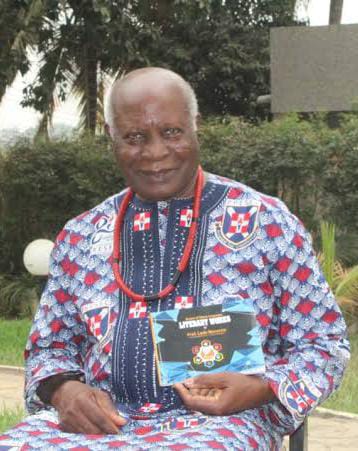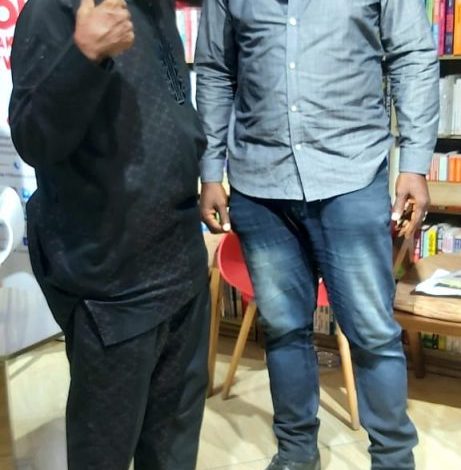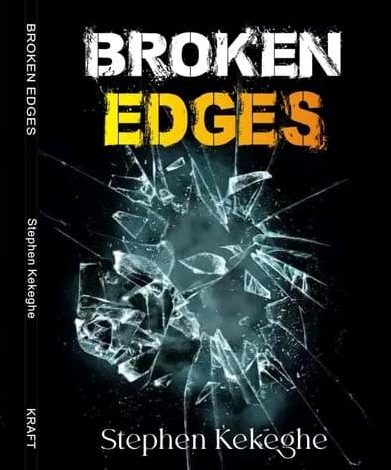Experts call on govt., writers, publishers, parents to propagate mother tongues in Africa

‘We need to start from homes, teach parents to teach children to read in their mother tongues’
‘We can borrow languages, but we can’t just jettison our mother tongues’
By Godwin Okondo
GHANA Association of Writers (GAW) held its yearly ‘Mother Tongue Explore’ programme on Tuesday, February 21, 2023, where experts addressed the importance of Africans improving their knowledge of their mother tongues rather than jettisoning them for colonial tongues as is currently the case on the continent. The virtual event had as theme ‘Preserving Ghanaian Languages: The role of Writers,’ with a focus on Prof. Lade Wosornu’s translated poems by the Bureau of Ghana Languages. It featured a panel discussion on the theme, as well as a reading of some of the poems from Wosornu’s collection. Although held in Ghana, the subject has resonance for all of Africa with its heavy colonial language burden that has robbed many of the beauty of their mother tongues and the inherent cultural riches in them.
The panelists included a senior lecturer in the English Department, University of Ghana, Dr. Kwabena Opoku-Agyemang, a poet at Writers Project of Ghana, Dr. Martin Egblewogbe, a senior lecturer in the Department of Linguistics, University of Ghana, Dr. Akua Campbell, and the Secretary General of Pan African Writers Association (PAWA), Dr. Wale Okediran, with the poet, essayist, and retired surgeon, Wosornu, as special guest of honour. Another special guest who represented the General Director of UNESCO, Audrey Azoulay, was Abdulrahman Diallo, who presented her official goodwill message to participants.
According to Azoulay, “The idea to celebrate International Mother Language Day was the initiative of Bangladesh. It was approved at the 1999 UNESCO General Conference and has been observed throughout the world since 2000. UNESCO believes in the importance of cultural and linguistic diversity for sustainable societies. It is within its mandate for peace that it works to preserve the differences in cultures and languages that foster tolerance and respect for others.
“Multilingual and multicultural societies exist through their languages which transmit and preserve traditional knowledge and cultures in a sustainable way. Linguistic diversity is increasingly threatened as more and more languages disappear. Globally 40 per cent of the population does not have access to an education in a language they speak or understand. Nevertheless, progress is being made in multilingual education with growing understanding of its importance, particularly in early schooling, and more commitment to its development in public life. This is also the aim of this International Mother Tongue Day: celebrating these ways of expressing the world in its multiplicity, committing to the preservation of the diversity of languages as a common heritage, and working for quality education – in mother tongues – for all.”

Campbell kicked off the panel session by emphasising the damage the dominance of colonial languages have on Africa’s indigenous tongues. She also called on writers and publishers to embark on the cultural duty of writing and publishing books in Africa’s mother tongues in spite of the seeming unprofitability of such venture for a start, implying that doing so was a futuristic project as book sales would naturally pick up once the audience begins to grow, a situation that could only happen with an initial effort. She argued that the inherent advantage of using mother tongues for early learning is immeasurable and should be embraced.
“Today, people are socializing their children in English,” she said. “A lot of people, organizations and corporate bodies make an observation about the main language spoken within these organizations, and they try as much as possible to make their children proficient in that particular language. If we want to maintain our identity and culture, we need to promote our mother tongues so that we can function outside our country.
“Writers have an indispensable role to play. There are no reading books in our mother tongues. The ones we have are dated back 50 years or more, so people read in English, and this is where writers can come in. We can write simple reading books for children, something they can easily understand, as well as illustrations about activities they participate in, and those which they don’t as well. When you present a problem for people in their mother tongues, they easily provide an answer, which is different when they learn with the English language. The publishers also have to jump in on this. Some publishers say books in mother tongues don’t really sell, because parents don’t buy these books for their children.”
Okediran lamented the inability of having a single language in Africa and also within countries, because of the multiplicity of languages and the workable templates to adopt to achieve lingua franca both for Africa and within African countries. He, however, stressed the roles writers could play in the preservation of mother tongues and other formats writers could deploy to make their works commercially viable, using other modern formats like films and translations. He called on governments, well meaning individuals and corporate bodies to weigh in and aid the publication and distribution of books in mother tongues to schools and libraries to help solve the problem of dearth of materials in the teaching and learning of mother tongues in African communities.
According to him, “We speak and write mainly in colonial languages. People have suggested picking a particular African language and making it a lingua franca for Africa, and this won’t be an easy task, because we have numerous languages in Africa to choose from, which would take some time to learn. Here in Africa, we prefer to teach our children Queen’s English rather than our own mother tongue. A writer is expected to entertain, educate and communicate. He is also supposed to be a leader. As writers, we have a duty to correct wrongs in the society. Other writers have tried to correct the poverty mantra among writers. We try to show writers how their works are commercially vital, like making the books into movies. I long to see more writers follow in Worsonu’s footstep and promote writing and reading in these languages.
“We need to start from the homes, teaching parents to teach children to read in their mother tongues. We shouldn’t leave everything to the writers. The government and private sectors can make sure these works are distributed in libraries and schools. We can also adapt these works into films and animations and other forms of digital productions.”
Also sharing his view was Egbelewogbe, who said, “The idea of preserving mother tongues is in some way a losing battle. My organization appreciates literature in mother tongues, and we hold a panel session where we read a book in the Eve language and awards are also given. I hear lots of people say we have to educate ourselves in our mother tongues. We also have to learn other languages. In the world of business, this is a necessity for growth. The writer has to keep telling stories, and keep having inputs in education and entertainment. The contribution of the writer is to keep telling stories. There are stories you read in translation and you want to know how it would sound in its original language. That’s the power of a writer. That is what a writer can do, making people interested in learning languages.”
Speaking on ways publishers can be motivated to publish books in mother tongues, Campbell said, “People won’t write in their languages if people can’t read them. The government can enforce children learning in their mother tongues. There is a big disparity when studying in English and in mother tongues. We also need to have mother tongues as core subjects and elective courses in schools. If people are taught from childhood that their mother tongue is important, they would be willing to learn. I feel energized every time I join events like this. I think we should try to speak to young ones in our mother tongues and always remember that all languages are equal. We can borrow languages, but we can’t just jettison our mother tongues. We also hope those who are creatives among us know that we are ready to read their books.”



